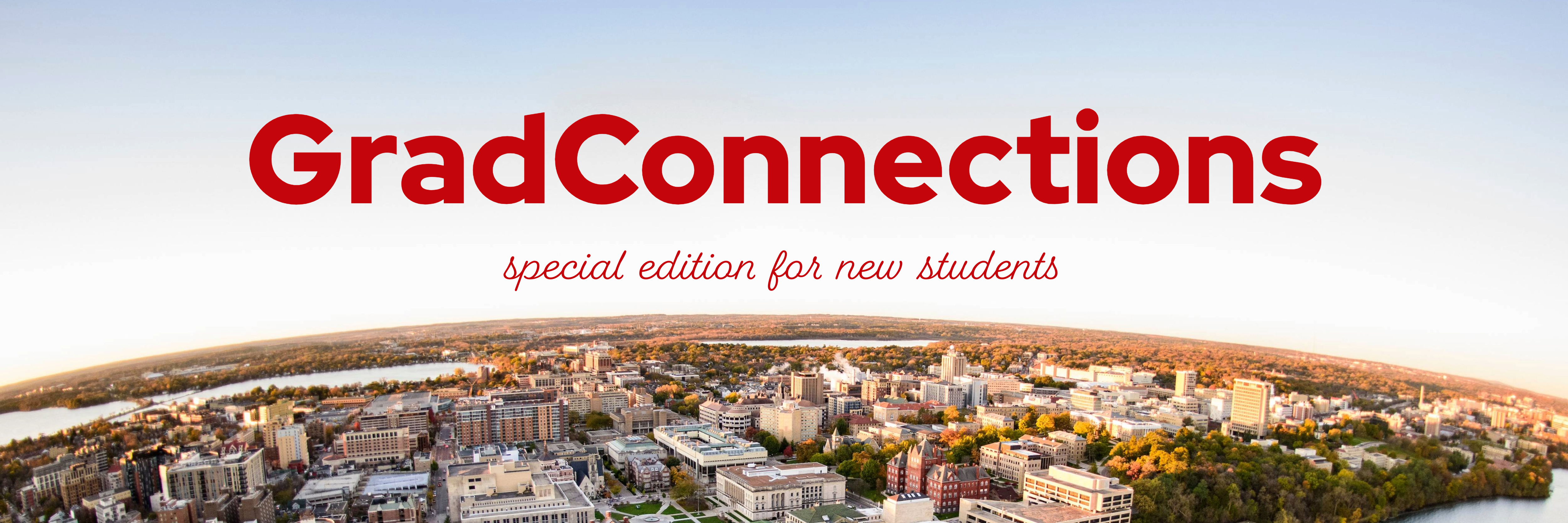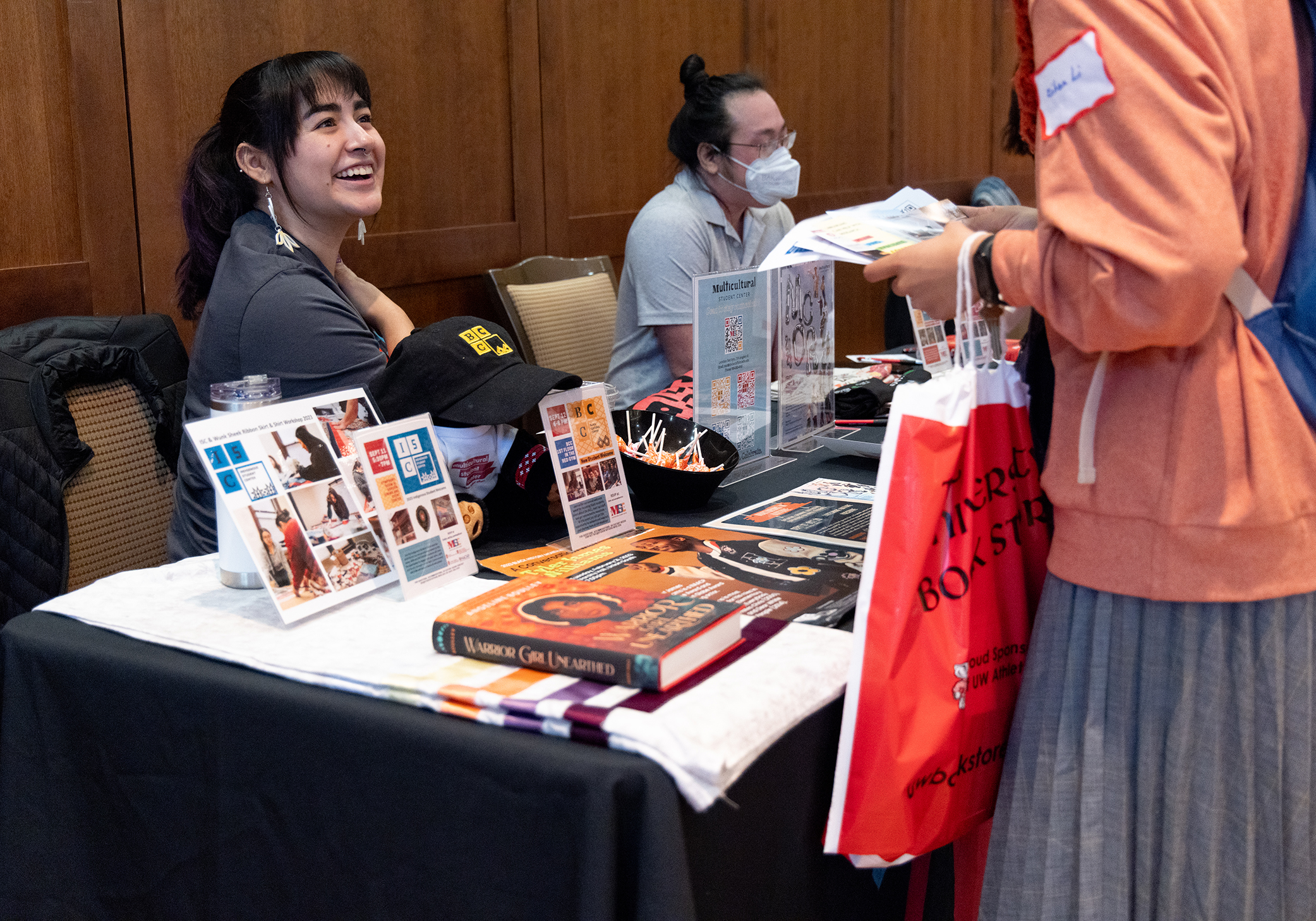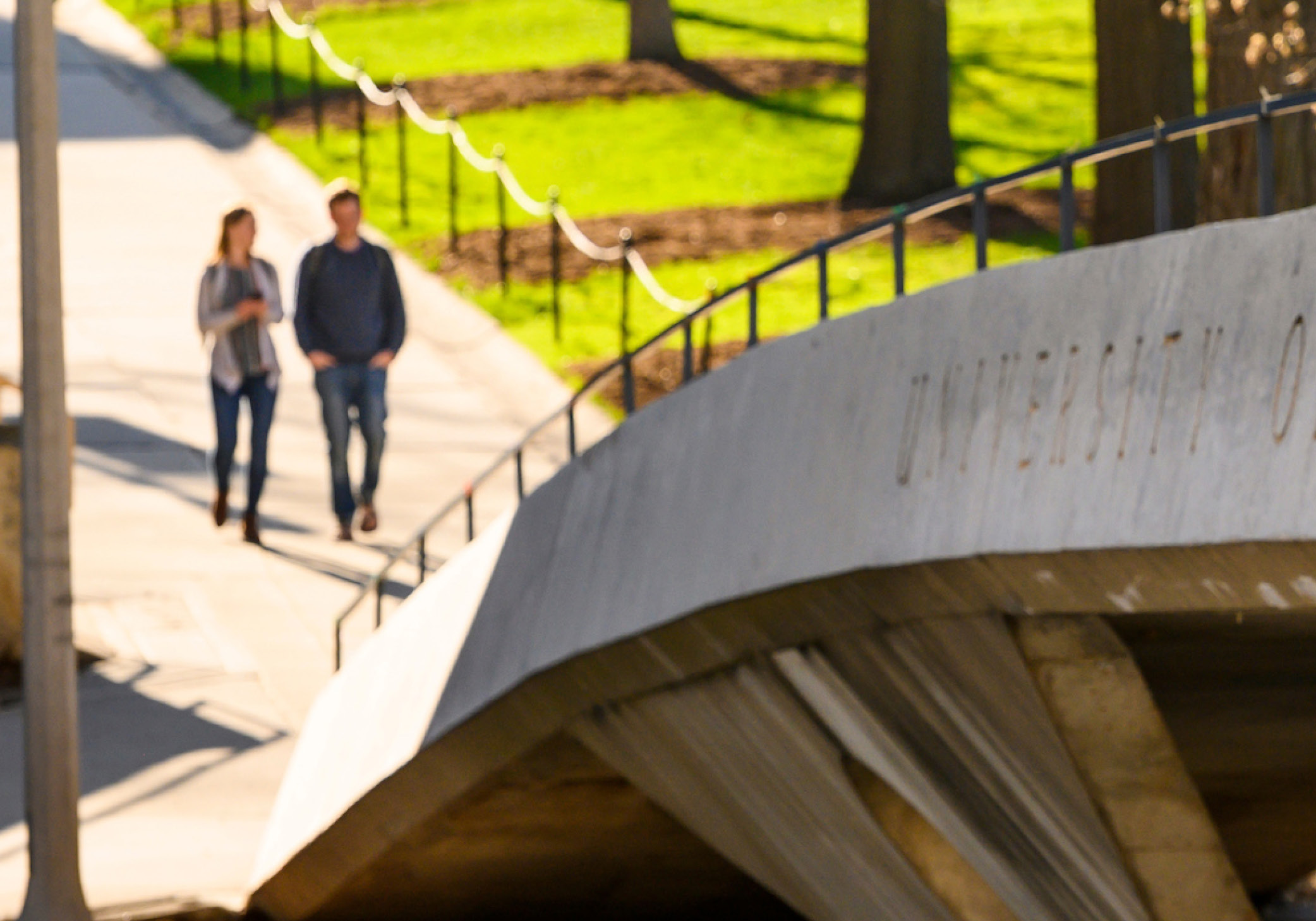
|
|
June 17, 2025
|
In this issue: Funding and financial aid, email access, and more.
|
Brush up on what you need to know with GradConnections
GradConnections is a weekly newsletter from the Graduate School to all grad students each Tuesday during the academic year. This special edition is designed with new students in mind, with helpful tips to get you ready for graduate school at UW–Madison. Watch for another special edition in mid-July.
You'll begin receiving regular editions of GradConnections in September. Students enrolled in online master's programs will receive GradConnections bi-Weekly for Online Students every other week starting in September.
|
|
|
|
Next up on the new student checklist
|
Use or forward your WiscMail account
WiscMail is your official campus email and is the university's main method of contacting you as a student. Starting this week, you should have access to WiscMail through the Email app in MyUW. If you run into issues accessing your WiscMail, contact the DoIT Help Desk.
|
Prepare to enroll in classes
As early as Monday, June 23, new grad students can begin to enroll for fall semester courses. The Registrar’s Office emails all students with the specific date and time after which they can enroll; watch for that email this week. To access the Course Search & Enroll app and begin building your course schedule, log in to MyUW and select the Academic Navigator widget.
Here are a few tips to prepare for enrollment:
- For help selecting courses, talk to your graduate program or faculty advisor.
- Note that the Graduate School has enrollment requirements for minimum and maximum credits, often depending on whether you have funding such as a graduate assistantship.
- If you have enrollment questions, first explore the Enrollment Overview webpage.
- For technical support, contact the DoIT Help Desk.
|
Sign up for multi-factor authentication by July 1
Everyone must use Duo multi-factor authentication (MFA) when signing in with their NetID. Duo MFA provides an extra layer of identity protection when accessing UW–Madison applications. Set up Duo MFA by July 1. If you have questions or need assistance, contact the DoIT Help Desk.
|
|
|
|
|
|
|
|

|
Save the date
The Graduate School invites all newly admitted graduate students to participate in New Graduate Student Welcome, happening on Wednesday, August 27, 2025. You'll receive an email invitation in July for this and other Welcome Week events, happening August 25 – 29.
|

|
Graduate Student Life
Written by current and former grad students for new graduate students, Graduate Student Life helps you get acquainted with campus, covering housing in Madison, getting around, campus life, academic resources, fun things to do around town, and much more.
|
|
|
|
|
Funding Forward: Empowering you to apply for external fellowships
|
Applying for external fellowships — those from agencies and foundations outside of the university — sharpens your ability to identify funding opportunities, articulate the impact of your research, write proposals, and develop budgets. External awards on your CV demonstrate grant-writing success and your promise as an exceptional researcher or scholar. Funding Forward from the Graduate School will help you navigate this landscape with confidence and competence through resources and workshops, including:
- Funding Forward: Equipping and Empowering Graduate Students to Apply for External Funding on Friday, August 29, 11:45 am – 1:30 pm
- Funding Resources for International Students on Wednesday, September 17, 11:30 am – 1:30 pm
Save the date, and watch for more information later this summer.
|
|
|
|
Funding and financial aid tips
|
Be proactive when looking for funding
- If you are looking for funding, start early and be proactive about possible gaps in your funding support.
- Seek out and apply for fellowships from federal agencies, professional organizations, and private foundations related to your discipline. Selected opportunities are listed on the Graduate School's fellowships webpage, and you can ask your advisor and peers in your discipline for help identifying possible fellowships to support your graduate study.
- Check out the funding information on the Graduate School's website.
- The Student Jobs Center lists graduate assistantships for which students may directly apply.
- You can also search for scholarships you may be eligible for on the Wisconsin Scholarship Hub.
- Parents of young children can apply for child care tuition assistance and backup child care. Read more about financial assistance for student parents.
Know your overall costs
- The cost of attendance webpage provides an estimate of your expenses.
- GradSense helps you explore strategies for paying for your graduate degree. The GradSense budget calculator helps you track your funding, costs, and general expenses to set budget goals and stay on track with your finances.
Know the terms of your funding offers
- Understand your funding package, which may include a combination of different types of appointments, such as teaching assistant positions, program assistantships, or fellowships.
- Understand the terms and conditions of your appointments, including:
- start/end dates
- stipend
- whether you are eligible for tuition remission
- whether you need to pay segregated fees
- date of your first paycheck (usually late September)
- tax information
- enrollment requirements
- whether the appointment includes any health insurance benefits
- Appointments may have different, or no, work requirements, and may differ in the benefits they offer, so it is important to understand exactly what types of support each appointment offers.
|
|
|
|
|
|
Strategies for funding an online master's degree
If you're returning to school in an online master's program, you may have more options than you think when it comes time to pay for tuition. Check out these seven tips for funding your education.
|
|
|
|
|
|
Tuition, fees, and financial aid
The Bursar's Office is the source of information about tuition rates, payment deadlines, and payment options. At UW–Madison, you pay tuition to cover the cost of your education, and segregated fees to cover the cost of student services on campus.
|
For more information on these topics, read the section on Tuition and Fees in Graduate Student Life.
|
Tuition remission for graduate assistants
Most graduate assistant appointments of 33% or higher in a single appointment (more than 13 hours per week) include the benefit of tuition remission. Students with these assistantships are still responsible for paying segregated fees.
Graduate students enrolled in service-based pricing programs, such as online and accelerated programs, are ineligible to receive tuition remission. Consult with your graduate program and read your admission and appointment letters carefully to understand your benefits eligibility.
|
Segregated fees
Segregated fees at UW–Madison contribute toward the student bus pass program, University Health Services, the Child Care Tuition Assistance Program, and other services, which are used at significant rates by graduate students. Unless you have a graduate assistantship, segregated fee payments are due at the same time as your tuition payment. Graduate assistants have a deferred segregated fee payment due date, which is the first Friday in December for the fall semester, and the first Friday in April for the spring semester.
|
Financial aid
The Office of Student Financial Aid is here to help you navigate the financial aid process, including how to submit the Free Application for Federal Student Aid (FAFSA), understanding different types of financial aid, and estimating your cost of attendance. Advisors are available to meet with students one-on-one for consultations.
|
|
|
|
|
|
Information for international students
Avoiding scams and fraud
Unfortunately, many international students are the targets of scams and fraud. Keep these tips in mind:
- U.S. government and law enforcement agencies (such as the IRS, USCIS, ICE, and the U.S. Department of State) will never ask for debit card, credit card, or prepaid/gift card information over the phone. They will never request immediate payment over the phone. You would receive a notification from a U.S. government office before any phone call is made to you.
- Scammers will rush you and want you to act quickly. They may threaten you, tell you to stay on the line and not hang up, or tell you that the conversation must be kept a secret.
- If you receive a call and are not sure if it is a scam, contact ISS for a second opinion.
- Be aware of the common types of scams and fraud, as well as the common warning signs of scams, by reading the full ISS guide to avoiding scams and fraud.
|
|
|
|
|
|
|
Help with your housing search
|
Many graduate students live in University Apartments, the collective name for three different neighborhoods: Eagle Heights, University Houses, and the Harvey Street Apartments. University Apartments boasts a vibrant community of campus-affiliated people from around the world.
If you're looking for housing off campus, the Campus Area Housing guide includes apartments, houses, sublets and roommate openings, privately owned residence halls, and more. If you're looking for off-campus housing, start here. Campus Area Housing staff can also help you determine if a listing you find online is legitimate. Parking options
The best way to get to and around UW–Madison's campus is often on foot, by bike, or by bus. However, a limited number of reduced/low-cost parking options are available on campus for graduate students. Read more about reduced and low cost parking options.
|
|
|
|
|
|
|